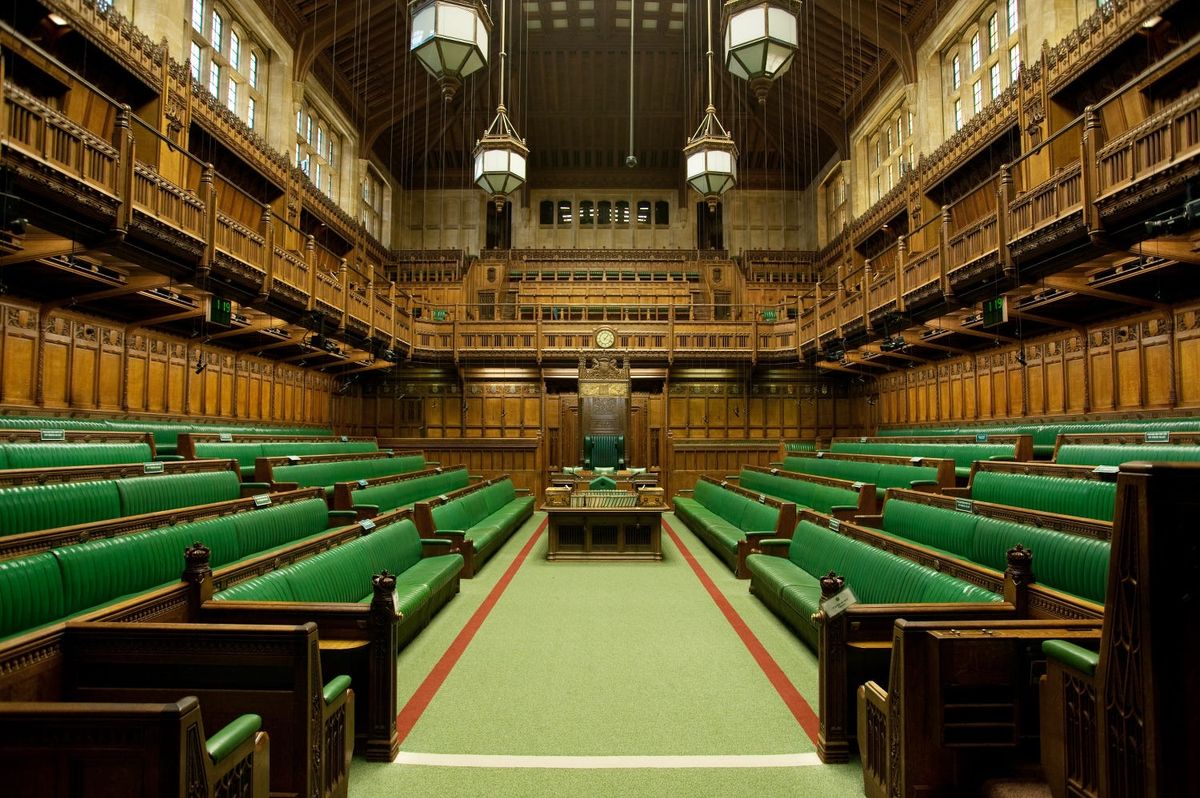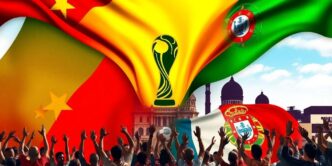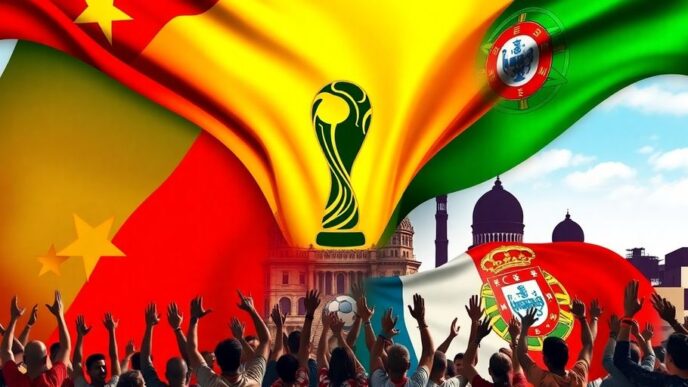Portugal’s 2024 elections have ushered in a new era in the nation’s political history. With a surprising surge in voter turnout and the emergence of new political forces, the country’s political landscape has experienced a significant transformation. The aftermath of the elections has left Portugal with a fragmented parliament, raising questions about the formation of a stable government. Amidst these developments, the role of Portugal in the international community, particularly within the European Union, and its economic policies concerning international investment and digital assets, remain pivotal topics of discussion.
Key Takeaways
- The 2024 elections marked a historic shift in Portugal’s voter turnout, indicating a reinvigorated engagement in the political process.
- A fragmented parliament with no clear majority poses challenges for governance and may lead to a period of political instability.
- The rise of new political forces, including populist parties, and recent corruption scandals have reshaped traditional political dynamics.
- Economic policies, particularly the future of the Golden Visa program and Portugal’s status as a digital asset hub, are crucial for the country’s international investment strategy.
- Portugal’s election results have significant implications for its role in the European Union and its broader foreign policy and diplomatic relations.
The Aftermath of the 2024 Elections: Analysing the Results

The Surprising Shift in Voter Turnout
In the recent Portugal election, a remarkable phenomenon occurred as the nation witnessed a surprising shift in voter turnout. The national abstention rate plummeted to 33.8%, marking the lowest figure since 1995. This significant increase in voter engagement comes as the country commemorates the 50th anniversary of its democratization, highlighting the progress made in political participation over the years.
The decrease in abstention rates is not just a number; it represents a reinvigorated democratic spirit among the Portuguese people, who are more involved in shaping their country’s future than ever before.
With the election results nearly finalized, the impact of this shift extends beyond the numbers. It has sparked a broader conversation about the future of Portugal’s political landscape. The tight contest between the center-right and center-left alliances, with the far-right Chega party potentially playing a pivotal role, underscores the dynamic nature of the current political climate.
Implications of a Fragmented Parliament
The recent elections have led to the most fragmented parliament in Portugal’s recent history, posing significant challenges for governance. The centre-right’s narrow victory underscores the difficulty of forming a stable majority government, reflecting a broader reinforcement of democratic values and the potential for political change.
The implications of a fragmented parliament are manifold. Key among them is the impact on the economy, as political instability can deter investment and complicate policy-making. The New Economy Institute suggests that potential coalitions could shift economic policies, especially concerning digital assets, indicating a departure from the current crypto-friendly regime.
Despite the challenges, the winning party remains optimistic about forming a stable government, ruling out alliances with certain fringe parties. The commitment to stability is echoed by the assertion that the government “has the confidence of the voters,” a sentiment that will be tested as they navigate the complexities of the new parliamentary landscape.
Prospects for a Majority Government
In the wake of the 2024 elections, the centre-right in Portugalis grappling with the reality of a narrow victory and the daunting task of forming a majority government. The Democratic Alliance (AD), despite its electoral success, confronts a highly fragmented parliament, the most divided since the end of the dictatorship era. This fragmentation underscores the strengthening of Portuguese democracy, emphasizing a shift in governance and the pursuit of political equilibrium.
Luis Montenegro, the leader of AD, has expressed confidence in leading a stable government without forming a coalition with the far-right Chega party. His commitment to stability was affirmed during a meeting with European Commission President Ursula von der Leyen, where he emphasized the electorate’s trust in his administration. However, the ability to govern effectively remains uncertain, hinging on the willingness of other parties, such as the Socialist Party (PS), to allow a minority government to function without giving leverage to Chega.
The New Economy Institute points out that potential alliances, particularly between PS, the Left Bloc (BE), and the Communist Party (CDU), could pressure the PS to abandon its crypto-friendly stance, as these parties are more critical of digital assets. The future of Portugal’s economic policies, especially concerning the digital asset sector, may well depend on the delicate negotiations and compromises that will shape the forthcoming government.
The Rise of New Political Forces in Portugal

The Emergence of Populist Parties
In the wake of the 2024 elections, Portugal witnessed a remarkable surge in populist sentiment, particularly with the rise of the far-right Chega party. This shift in the political landscape has been a part of a broader European trend towards right-wing populism.
The election results underscored the fragmentation of Portugal’s political spectrum, with traditional parties facing unprecedented challenges. The center-right Democratic Alliance (AD) emerged victorious but with a narrow margin, indicating a volatile electorate. Chega’s ascent to a significant parliamentary presence has sparked debates on the future direction of Portugal’s governance.
The populist wave has not only reshaped the parliament but also posed questions about the stability of future coalitions and the role of traditional parties in this new era.
While the AD has won 79 seats and the Socialist Party (PS) 74, Chega’s entry with 48 seats is a testament to the changing voter preferences. The center-right’s victory, coupled with the populist rise, suggests a complex road ahead for forming a stable government.
Impact of Corruption Scandals on Traditional Parties
The recent political landscape in Portugal has been significantly altered by corruption scandals affecting the traditional parties. The Socialist Party (PS), once a dominant force, has seen its position weakened due to ongoing investigations and high-profile resignations, including that of Prime Minister Costa. This turmoil prompted the president to dissolve the parliament and call for early elections.
The impact on the PS was evident in the latest polls, which indicated a tight race with the Democratic Alliance. The scandals have not only damaged the PS’s reputation but also paved the way for new political entities to gain ground. Notably, the far-right Chega party experienced a surge, claiming a strong third-place finish in the elections.
The erosion of trust in traditional parties has led to a volatile and unpredictable political environment, where new alliances and power dynamics are constantly evolving.
The table below summarizes the shift in voter support:
| Party | Previous Support (%) | Current Support (%) |
|---|---|---|
| PS | 38 | 29 |
| Democratic Alliance | 28 | 30 |
| Chega | 8 | 15 |
These figures reflect a significant realignment of the political spectrum, with traditional parties grappling to maintain influence amid rising populist sentiments.
The Role of the President in the New Political Equation
In the wake of a fragmented parliament, the President of Portugal has assumed a pivotal role in shaping the government’s future. Portugal’s president named Luis Montenegro as the new Prime Minister, signaling a shift towards the centre-right Democratic Alliance (AD). This appointment underscores the president’s influence in navigating the political impasse and fostering a stable governance environment.
The president’s mediation is crucial in a minority government scenario, where the need for negotiation and consensus is paramount. Montenegro’s administration, while enjoying voter confidence, will be “condemned to negotiation,” as minority governments often are. The president’s role extends beyond appointment to ensuring that all political players, including the opposition, maintain a sense of responsibility towards national stability.
The table below outlines the key responsibilities of the President in the current political landscape:
| Responsibility | Description |
|---|---|
| Appointment of the Prime Minister | Naming the leader capable of forming a stable government |
| Mediation | Facilitating negotiations among parties to avoid political deadlock |
| Oversight | Ensuring all political entities act with national interest in mind |
The president’s enhanced role in this new political equation is a testament to the evolving dynamics of Portuguese politics, where traditional party structures are challenged, and the need for agile leadership is more pronounced than ever.
Economic Policies and International Investment

The Future of the Golden Visa Program
The Portugal Golden Visa, a linchpin of the nation’s investment landscape, faces a crossroads. On 7 October 2023, new legislation altered the program’s course, restricting the once broad real estate investment avenue. This pivot away from real estate is seen by some as a necessary evolution, addressing market gaps and the burgeoning need for affordable housing.
The AD party, during its campaign, pledged to reassess the program, particularly the real estate component that was phased out last year. The party’s stance suggests a cautious approach, recognizing that a simple reinstatement of the original terms may not be prudent given the program’s historical impact.
As Portugal navigates its new political and economic landscape, the Golden Visa program’s future will significantly influence the nation’s trajectory.
The debate continues as stakeholders and policymakers weigh the benefits of attracting foreign capital against the need for sustainable development. The program’s next iteration may well reflect a more strategic alignment with Portugal’s long-term economic goals.
Portugal as a Digital Asset Hub
Portugal’s ascent as a digital asset hub has been marked by a vibrant ecosystem and progressive policies that have attracted global attention. The nation’s crypto-friendly legislation has positioned it as one of Europe’s leading destinations for blockchain and digital asset companies. However, the recent elections have cast uncertainty over the future of these policies, with all national parties incorporating cryptocurrency positions into their electoral programs.
The Portuguese Web3 ecosystem boasts over 650 companies, a testament to the country’s commitment to fostering innovation in this sector. Despite this, Portugal ranks 58th worldwide for crypto adoption, indicating room for growth and the need for continued supportive measures. The ‘200M Fund‘ is one such initiative, blending private funding and co-investing to fuel the sector’s expansion.
The outcome of the elections could significantly influence Portugal’s trajectory as a digital asset hub, potentially reshaping its regulatory landscape and affecting its appeal to international investors.
With the political landscape in flux, the digital asset community awaits to see how the new government will navigate the intersection of technology and regulation, ensuring that Portugal remains at the forefront of the digital economy.
Foreign Investment Strategies and Political Agendas
In the wake of the 2024 elections, Portugal’s political parties have placed a renewed focus on foreign investment strategies, with particular attention to the nation’s role as a burgeoning digital asset hub. The alignment of political agendas with investment incentives is crucial for maintaining Portugal’s appeal to international investors.
- The Golden Visa program, a residency by investment initiative, remains a hot topic, with debates on its future direction.
- Cryptocurrency policies are under scrutiny, as Portugal’s status as a crypto-friendly destination hangs in the balance.
- Political promises to review and potentially revise investment programs reflect a willingness to adapt to the evolving economic landscape.
Portugal’s Position on the Global Stage

International Reactions to Portugal’s Election Results
The outcome of the 2024 Portuguese elections has resonated beyond the country’s borders, drawing a spectrum of reactions from the international community. The rise of the far-right and the potential kingmaker role of a previously lightly regarded party have been focal points in the global discourse. Media outlets, including NPR, have highlighted the unexpected shift in the political landscape, emphasizing the challenges ahead for the traditional parties.
The international spotlight on Portugal’s elections is partly due to the significant decrease in abstention rates, which signals a more engaged electorate. This heightened participation is seen as a reflection of the country’s progress since the Carnation Revolution, marking its 50th anniversary.
European observers are particularly attentive to the implications for regional stability and the dynamics within the European Union. The BBC notes the centre-right’s narrow victory and the hurdles it faces in forming a stable government amidst the strengthened position of Chega, a far-right party.
Portugal’s Role in the European Union Post-Elections
Following the 2024 elections, Portugal’s political dynamics have seen considerable changes, yet the commitment to the European Union remains steadfast. Outgoing Prime Minister Costa assured that there would be ‘no change’ to Portugal’s foreign policy, emphasizing continuity in the nation’s EU relations. This assertion suggests a stable approach to EU affairs, despite the internal political shifts.
The role of Portugal within the EU is also influenced by the potential for political deadlock. In such scenarios, President Rebelo de Sousa’s role as a mediator becomes crucial, ensuring that Portugal’s stance in the EU is not compromised by domestic political turbulence.
Portugal’s engagement with the EU is expected to continue with the same vigor, reflecting a shared vision for Europe’s future despite the evolving political landscape at home.
The election results have sparked discussions about Portugal’s future, both politically and economically. As a member of the EU, Portugal’s decisions on digital assets and cryptocurrency regulations will be closely watched, given its status as one of Europe’s few crypto hotspots. The inclusion of cryptocurrency positions in all national parties’ electoral programs indicates the importance of this issue within Portugal’s political discourse.
The Impact on Portugal’s Foreign Policy and Diplomacy
The recent elections in Portugal have set the stage for a nuanced approach to foreign policy and diplomacy. The stability of Portugal’s foreign policy is crucial for maintaining its position on the global stage. Despite potential shifts in the domestic political landscape, there is an expectation of continuity in international relations, as indicated by the outgoing prime minister’s assurance of “no change” to Portugal’s foreign policy.
The Diplomatic Portal remains a pivotal resource for understanding Portugal’s stance and initiatives in foreign affairs.
The role of the President, particularly in mediating political deadlock, could become more pronounced, ensuring that Portugal’s diplomatic efforts remain consistent and effective. As the nation continues to be a digital asset hub and a key player in international investment, its foreign policy will likely reflect the dynamic nature of its political and economic strategies.
Conclusion
As the dust settles on Portugal’s 2024 elections, the nation stands at a crossroads, with a fragmented parliament and a political landscape that has undergone a seismic shift. The centre-right’s narrow victory and the rise of new political forces reflect a vibrant democracy, yet they also herald a period of uncertainty and negotiation.
The implications of these elections extend beyond domestic policy, potentially influencing Portugal’s position as a digital asset hub and its approach to foreign investment. With the Golden Visa program and cryptocurrency policies at stake, the decisions of the incoming government will be pivotal in shaping Portugal’s future.
As the world watches, Portugal Homes remains committed to monitoring these developments, understanding their impact on the real estate market, and providing insights into the evolving political situation in Portugal.













